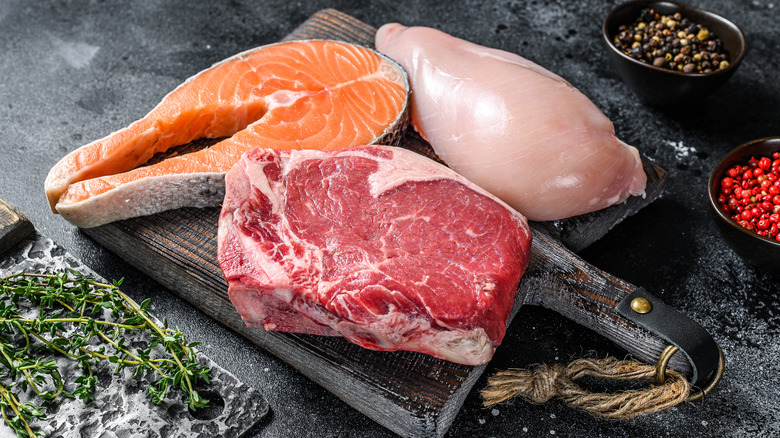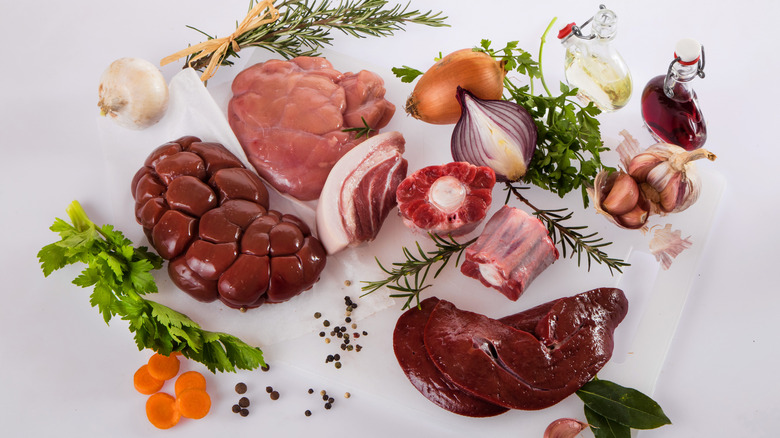You Should Stop Eating These Kinds Of Meats If You Suffer From Gout
If you're a history nut, you've probably read plenty about gout. Henry VIII famously lived with the condition for much of his adult life, brought on by what historians termed a "rich diet." But this disease is far from an antiquated relic. A 2012 article in The Atlantic stated that gout was on the rise across America — and that trend doesn't seem to have changed since the article's publication.
The CDC lists gout as one common form of arthritis, making up a portion of estimated 22% of Americans diagnosed with arthritis each year. Gout is classified as an inflammatory form of arthritis, one that usually affects a single joint at a time. Usually the joint is that of the big toe, but any joint can be affected.
Gout runs in cycles where it either flares up and causes symptoms, or it falls into remission and the symptoms stop for a period of time. Unfortunately, there is no cure for gout once it develops. However, there are several ways to reduce its symptoms and the likelihood of a flare-up. Some of those methods include losing weight and increasing your physical activity, according to the CDC. And while these can help, diet is the biggest factor that can help decrease the effects of gout.
Avoid most meats ... but some are worse than others
Historians aren't wrong when they say that a rich diet increases a person's risk of gout. Gout's symptoms are due to a buildup of uric acid in the body, a condition known as hyperuricemia. The Arthritis Foundation explains that this compound builds up as the body breaks down a compound known as purines. While our bodies naturally produce purines, the compound is also found in certain foods. If a person eats too much of these foods, their body ends up with an excess of uric acid.
Certain foods are higher in purines than others. The Arthritis Foundation states that caviar, roe, scallops, lobster, and other rich seafoods should be avoided by people who have gout or are at risk of developing the condition. Organ meats such as liver, kidneys, sweetbreads, tongue, and brain are also high in purine. Goose and wild game like venison, quail, and pheasant are also high in purines, as are gravies, broths, and mincemeat.
Other types of meat (and many other protein sources) must be consumed in moderation. With care, however, people with gout can still eat chicken, oysters, lamb, and duck.


